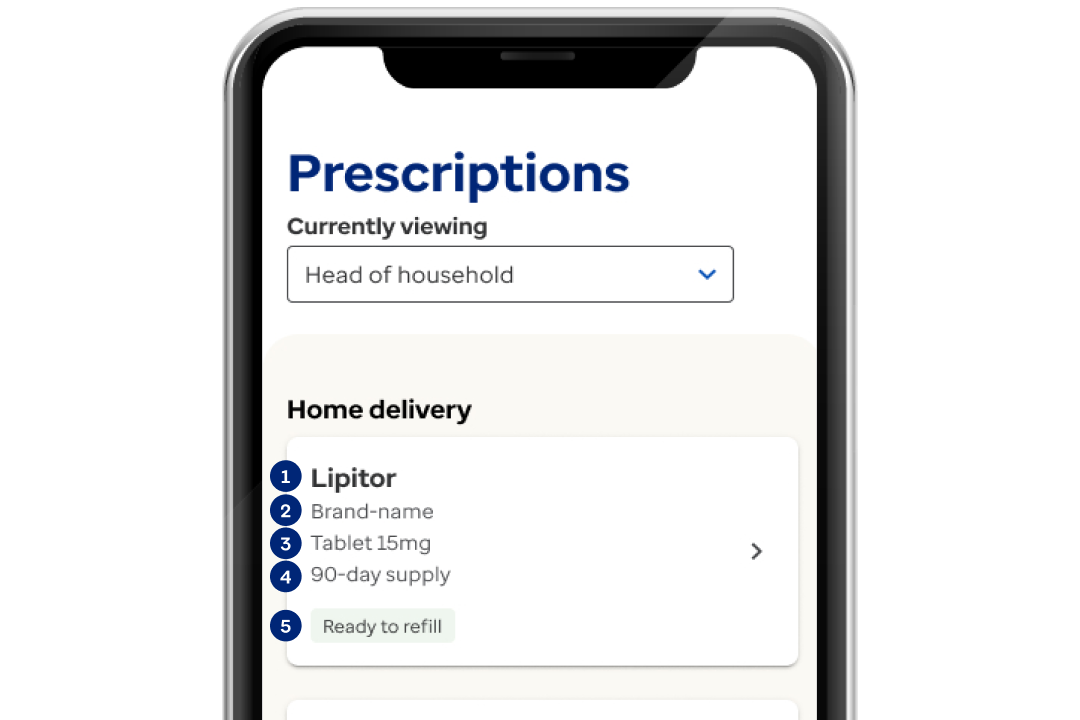Understand your medication
Last updated on September 1, 2023

Prescription details
It’s important that you understand your medication. To help you get to know more about what your provider has prescribed, you can review the prescription details for each medication in your account.
View prescription information, including:
- Medication name
- Type (brand-name or generic)
- Form (pill, capsule, etc.) and dose
- Supply (30-day, 90-day, etc.)
- Order status
Brand-name vs. generic medication
Researchers spend significant time and money trying to find new treatments for a wide range of illnesses. When a company discovers, develops and patents a new drug, they have exclusive rights to sell it for a set amount of time. When their patent expires, other companies can make and sell a generic version of the medication.
Generic medication must contain the same active ingredients as the brand-name version. Their formulas can include different inactive ingredients, like flavoring or preservatives. According to the U.S. Food and Drug Administration, generics are just as safe and effective.
Alternative medication
Your provider can choose an alternative medication if you experience side effects or have drug interactions with a prescription. Alternative medication can be just as effective for treating your health condition as your current medication.
Prescription drug information
You can find important details about your medication in the prescription drug information section of prescription details. Click View drug information to learn how to use your medication, read about possible side effects and understand any warnings.
Proper disposal of medication
If you have leftover or expired medications, it is important that you dispose of them safely.
State laws and regulations
Medication disposal laws vary from state to state. You can find information about local laws and regulations on your state’s health department website. Waste disposal companies can help you dispose of unwanted medication.
GRP & Associates
Waste Management
United States federal guidelines
Visit the Environmental Protection Agency (EPA), Food and Drug Administration (FDA) or White House Drug Policy websites to learn about federal guidelines.
Environmental Protection Agency (EPA)
Food and Drug Administration (FDA)
White House drug policy
Controlled substances policy
We are committed to ending the opioid crisis. To do our part, we will not accept paper or fax prescriptions. As of Jan. 1, 2020, your provider must send prescriptions for all controlled substances through our certified electronic system. Talk with your prescriber about using a safe and secure system. This policy change does not affect members residing in nursing homes or in hospice care, nor our members in Alaska, Guam, Puerto Rico and the U.S. Virgin Islands.
How do I know if my prescription is a controlled substance?
The U.S. Drug Enforcement Agency (DEA) regulates certain medication for safety and potential for abuse. Check with your prescriber or pharmacist to see if your medication is a controlled substance. Or visit the DEA’s website to view a list of these medications.
U.S. Drug Enforcement Agency (DEA) “Controlled Substances Act”
Sign in to Optum Rx
Manage your account
Access individual, dependent or family health information.
Know your coverage and costs
Find pricing for brand-name and generic medication.
Update your prescribers
Ensure your prescriber details are up to date.